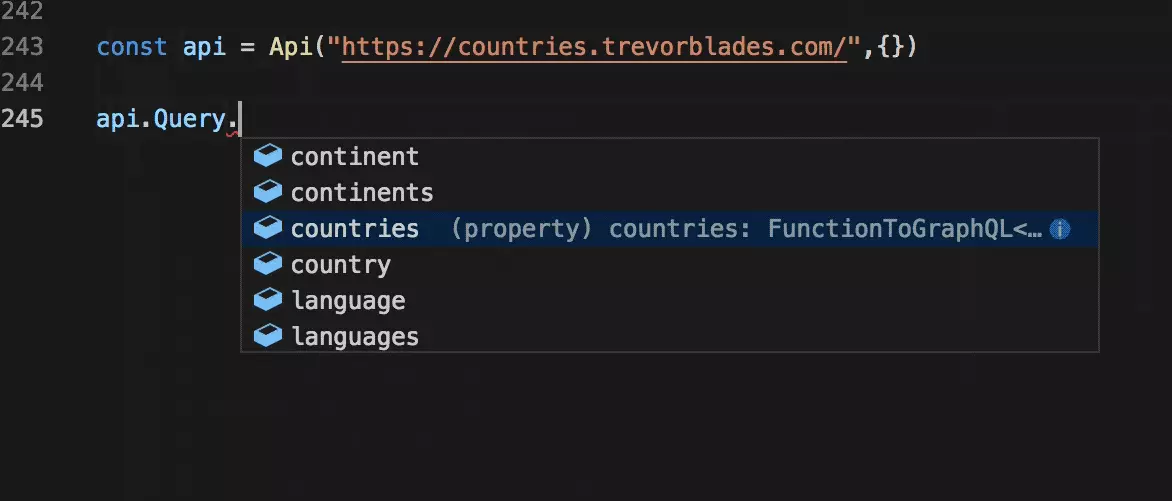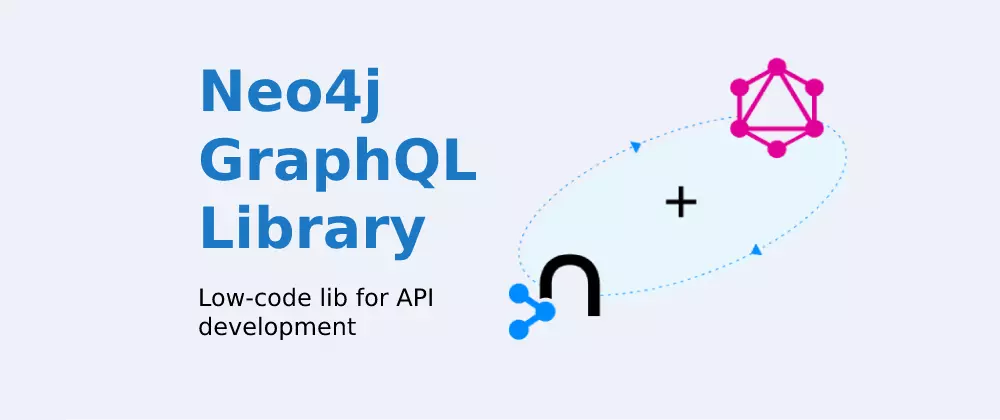
Frontend API generation from GraphQL schema part 2
GraphQL Editor now generates API lib from graphQL schema!
This article will be about advanced TypeScript types. We used them in our graphql-editor to introduce safe typed queries which is most wanted feature in graphql editor. Usage of advanced types enabled us to provide generated typescript lib for your graphql schema.
How it works?
GraphQL Editor generates api lib from graphql schema/url. To make it work:
- navigate to GraphQL Editor and import your schema from file or URL or if you want to just complete tutorial use this one
https://countries.trevorblades.com/found this one on internet. - click typescript tab
- click Copy button located on the bottom of menu
- create .ts file in your TS project and copy the contents into it
- Your file should look like this one:
export type Upload = any;
export enum CacheControlScope {
PUBLIC,
PRIVATE,
}
export type Language = {
code?: string;
name?: string;
native?: string;
rtl?: number;
};
export type Country = {
code?: string;
name?: string;
native?: string;
phone?: string;
continent?: Continent;
currency?: string;
languages?: Language[];
emoji?: string;
emojiU?: string;
};
export type Continent = {
code?: string;
name?: string;
};
export type Query = {
continents: (props: {}) => Continent[];
continent: (props: { code?: string }) => Continent;
countries: (props: {}) => Country[];
country: (props: { code?: string }) => Country;
languages: (props: {}) => Language[];
language: (props: { code?: string }) => Language;
};
type Func<P extends any[], R> = (...args: P) => R;
type ArgsType<F extends Func<any, any>> = F extends Func<infer P, any>
? P
: never;
type GraphQLResponse = {
data?: {
[x: string]: any;
};
errors?: {
message: string;
}[];
};
class GraphQLError extends Error {
constructor(public response: GraphQLResponse) {
super('');
console.error(response);
}
toString() {
return 'GraphQL Response Error';
}
}
type Dict = {
[x: string]: Dict | any | Dict[] | any[];
};
type ResolveReturned<T> = {
[P in keyof T]?: T[P] extends (infer R)[]
? ResolveReturned<R>[]
: T[P] extends {
[x: string]: infer R;
}
? ResolveReturned<T[P]>
: T[P] extends Func<any, any>
? ResolveReturned<ReturnType<T[P]>>
: T[P];
};
export type State<T> = ResolveReturned<T>;
type GraphQLDictReturnType<T> = T extends Func<any, any>
? ResolveReturned<ReturnType<T>>
: T;
type ResolveArgs<T> = {
[P in keyof T]?: T[P] extends (infer R)[]
? ResolveArgs<R>
: T[P] extends {
[x: string]: infer R;
}
? ResolveArgs<T[P]>
: T[P] extends Func<any, any>
? [ArgsType<T[P]>[0], ResolveArgs<ReturnType<T[P]>>]
: true;
};
type GraphQLReturner<T> = ResolveArgs<T>;
type FunctionToGraphQL<T extends Func<any, any>> = (
props?: ArgsType<T>[0],
) => (o: GraphQLReturner<ReturnType<T>>) => Promise<GraphQLDictReturnType<T>>;
type fetchOptions = ArgsType<typeof fetch>;
const joinArgs = (q: Dict) =>
Array.isArray(q)
? `[${q.map(joinArgs).join(',')}]`
: typeof q === 'object'
? `{${Object.keys(q)
.map((k) => `${k}:${joinArgs(q[k])}`)
.join(',')}}`
: typeof q === 'string'
? `"${q}"`
: q;
const resolveArgs = (q: Dict): string =>
Object.keys(q).length > 0
? `(${Object.keys(q)
.map((k) => `${k}:${joinArgs(q[k])}`)
.join(',')})`
: ``;
const isArrayFunction = (a) => {
const [values, r] = a;
const keyValues = Object.keys(values);
const argumentString =
keyValues.length > 0
? `(${keyValues
.map(
(v) =>
`${v}:${
typeof values[v] === 'string'
? `"${values[v]}"`
: JSON.stringify(values[v])
}`,
)
.join(',')})${traverseToSeekArrays(r)}`
: traverseToSeekArrays(r);
return argumentString;
};
const resolveKV = (
k: string,
v: boolean | string | { [x: string]: boolean | string },
) =>
typeof v === 'boolean'
? k
: typeof v === 'object'
? `${k}{${objectToTree(v)}}`
: `${k}${v}`;
const objectToTree = (o: { [x: string]: boolean | string }) =>
`{${Object.keys(o).map((k) => `${resolveKV(k, o[k])}`)}}`;
const traverseToSeekArrays = (a) => {
let b = {};
Object.keys(a).map((k) => {
if (Array.isArray(a[k])) {
b[k] = isArrayFunction(a[k]);
} else {
if (typeof a[k] === 'object') {
b[k] = traverseToSeekArrays(a[k]);
} else {
b[k] = a[k];
}
}
});
return objectToTree(b);
};
const buildQuery = (a) =>
traverseToSeekArrays(a).replace(
/\"([^{^,^\n^\"]*)\":([^{^,^\n^\"]*)/g,
'$1:$2',
);
const construct =
(t: 'query' | 'mutation' | 'subscription', name: string, args: Dict = {}) =>
(returnedQuery?: string) =>
`
${t === 'query' ? '' : t}{
${name}${resolveArgs(args)}${returnedQuery}
}
`;
const apiFetch = (options: fetchOptions, query: string, name: string) =>
fetch(`${options[0]}?query=${encodeURIComponent(query)}`, options[1] || {})
.then((response) => response.json() as Promise<GraphQLResponse>)
.then((response) => {
if (response.errors) {
throw new GraphQLError(response);
}
return response.data[name];
});
const fullConstruct =
(options: fetchOptions) =>
(t: 'query' | 'mutation' | 'subscription', name: string) =>
(props) =>
(o) =>
apiFetch(options, construct(t, name, props)(buildQuery(o)), name);
export const Api = (...options: fetchOptions) => ({
Query: {
continents: ((props) => (o) =>
fullConstruct(options)(
'query',
'continents',
)(props)(o).then(
(response) => response as GraphQLDictReturnType<Query['continents']>,
)) as FunctionToGraphQL<Query['continents']>,
continent: ((props) => (o) =>
fullConstruct(options)(
'query',
'continent',
)(props)(o).then(
(response) => response as GraphQLDictReturnType<Query['continent']>,
)) as FunctionToGraphQL<Query['continent']>,
countries: ((props) => (o) =>
fullConstruct(options)(
'query',
'countries',
)(props)(o).then(
(response) => response as GraphQLDictReturnType<Query['countries']>,
)) as FunctionToGraphQL<Query['countries']>,
country: ((props) => (o) =>
fullConstruct(options)(
'query',
'country',
)(props)(o).then(
(response) => response as GraphQLDictReturnType<Query['country']>,
)) as FunctionToGraphQL<Query['country']>,
languages: ((props) => (o) =>
fullConstruct(options)(
'query',
'languages',
)(props)(o).then(
(response) => response as GraphQLDictReturnType<Query['languages']>,
)) as FunctionToGraphQL<Query['languages']>,
language: ((props) => (o) =>
fullConstruct(options)(
'query',
'language',
)(props)(o).then(
(response) => response as GraphQLDictReturnType<Query['language']>,
)) as FunctionToGraphQL<Query['language']>,
},
Mutation: {},
Subscription: {},
});
- Create api function in separate .ts file looking more or less like this:
import {Api} from
const api = Api("https://countries.trevorblades.com/",{})
api.Query.continents()({
name:true,
code:true
}).then(response => response.map(c => console.log(`Continent: ${c.name}`)))
- You should be able to autocomplete queries from GraphQL!

How it happened?
Function to graphql type
type FunctionToGraphQL<T extends Func<any, any>> = (
props?: ArgsType<T>[0],
) => (o: GraphQLReturner<ReturnType<T>>) => Promise<GraphQLDictReturnType<T>>;
Arguments Type
type Func<P extends any[], R> = (...args: P) => R;
type ArgsType<F extends Func<any, any>> = F extends Func<infer P, any>
? P
: never;
I found this type in very useful github repo it infers args type. I assume there is one object argument so thats why I take 0
GraphQL returner type
type GraphQLReturner<T> = T extends (infer R)[]
? ResolveArgs<R>
: ResolveArgs<T>;
We check if it is array or not and resolve only returners of the base type and the journey continues
Resolve Args
type ResolveArgs<T> = {
[P in keyof T]?: T[P] extends (infer R)[]
? ResolveArgs<R>
: T[P] extends {
[x: string]: any;
}
? ResolveArgs<T[P]>
: T[P] extends Func<any, any>
? [ArgsType<T[P]>[0], ResolveArgs<ReturnType<T[P]>>]
: true;
};
This one is more complicated so we will go through it step by step
- We assume receiving an object as we disqualificated arrays in GraphQL returner type
- We tak key as
[P in keyof T]?and value asT[P] - If it is array we remove it as we do not need arrays in graphql returners
- If value is an object we need to pass it through alo
- If it is a Function we split it to array with 2 elements args and returner
- Else its a true type so you write true if you want to have that part returned
GraphQLDictReturnType
type ResolveReturned<T> = {
[P in keyof T]?: T[P] extends (infer R)[]
? ResolveReturned<R>[]
: T[P] extends {
[x: string]: infer R;
}
? ResolveReturned<T[P]>
: T[P] extends Func<any, any>
? ResolveReturned<ReturnType<T[P]>>
: T[P];
};
Quite same with some exceptions as args. The only difference is we infer Array just to resolve inside types and then we write it as array again.
Enough?
Look these generic types are so powerful.





